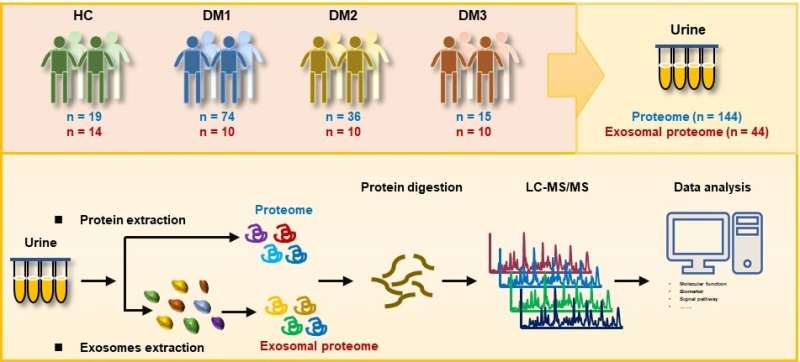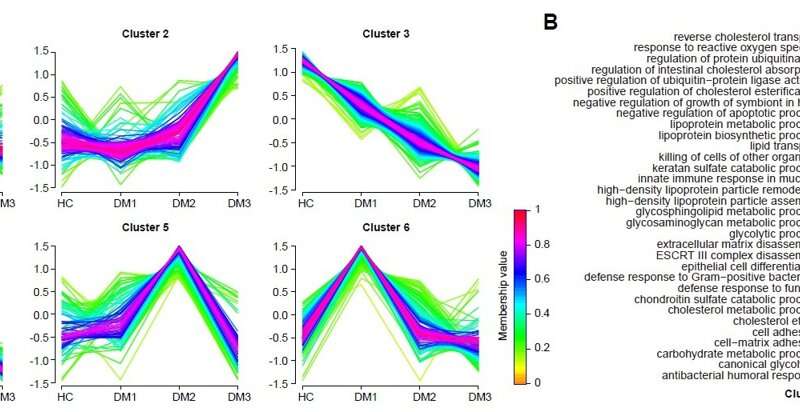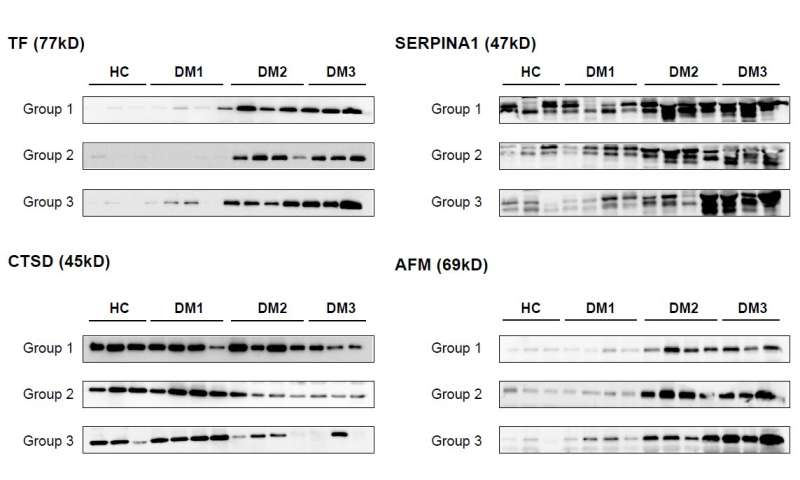This article has been reviewed according to Science X's editorial process and policies. Editors have highlighted the following attributes while ensuring the content's credibility:
fact-checked
peer-reviewed publication
trusted source
proofread
In-depth urinary and exosome proteome profiling analysis identifies novel biomarkers for diabetic kidney disease

Diabetic kidney disease (DKD) is a major microvascular complication of type 2 diabetes mellitus (T2DM), causing irreversible kidney damage and poor prognosis for patients. Early monitoring and screening of renal injury are necessary for patients with T2DM, particularly for those with a long disease course.
Shichun Du, Linhui Zhai, Shu Ye, and their colleagues performed a large-scale urinary proteomics (n = 144) and urinary exosome proteomics (n = 44) analyses on patients with T2DM in varying degrees of albuminuria.
A total of 144 urine specimens were collected from 144 clinical patients comprising 19 healthy control (HC) individuals and 125 patients with DM (74 in DM1 stage with the ACR value < 30 mg/g, 36 in DM2 stage with 30 mg/g ≤ ACR value ≤ 300 mg/g, and 15 in DM3 stage with the ACR value > 300 mg/g).
The team revealed the dynamic characteristics of the urinary and exosome proteomes in patients with T2DM in varying degrees of albuminuria. This study classified all the proteins into six clusters according to their expression patterns during DKD progression. They found that the proteins involved in glycolytic and ubiquitination processes were drastically decreased from HC to DM1 while slowly decreasing from DM1 to DM3 stage.
-

Dynamics analysis of urinary proteome during DKD progression. Credit: Science China Press -

Validation of potential protein biomarkers using western blot. Credit: Science China Press
The expression of the proteins involved in lipid transport and cholesterol esterification gradually increased with DKD progression and reached a peak at DM3 stage. The proteins that mainly participated in carbohydrate metabolic processes were highly expressed in patients with DM and then decreased with DKD progression.
The authors further found and verified a series of proteins such as SERPINA1 and TF in another cohort of diabetic urine samples with different stages of DKD, which had the potential to be used as potential biomarkers for DKD diagnosis or disease monitoring. This provided a valuable resource for discovering potential urinary biomarkers in patients with DKD.
The work is published in the journal Science China Life Sciences.
More information: Shichun Du et al, In-depth urinary and exosome proteome profiling analysis identifies novel biomarkers for diabetic kidney disease, Science China Life Sciences (2023). DOI: 10.1007/s11427-022-2348-0




















